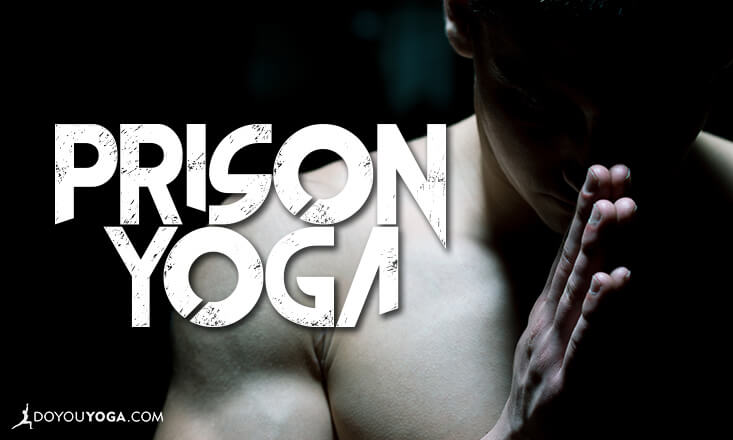Yoga isn’t just for perfect bodies in incense-scented studios. In fact, yoga can be at its most effective in places that seem to be the least friendly environments to peace and love.
We all know how great an impact yoga can have on our own busy lives – relaxation, energy and improved confidence and calm are just some of the benefits.
But imagine being locked in a tiny cell with at least one other person 23 hours a day. I’d find it hard to stay sane in that environment without some kind of spiritual practise.
Yoga in Prisons
There are several organisations in the US and Europe bringing yoga and meditation to prisons. The Phoenix Prison Trust (PPT) in England and Ireland call their magazine “Doing Time,” and point out that, in fact, we’re all doing time.
We all have a limited amount of space and time on this earth, and learning to cope with the pressures and restrictions of daily life is, for most of us, an ongoing challenge.
Prisons are designed to control, restrain, punish, and often dehumanise those who reside and work in them. The antiquated model of caging people as if they were wild beasts is long past its sell-by date, in my opinion. But even within this medieval structure, there are paths to freedom.
A number of organisations are providing yoga and mediation to people on the inside, and the effects are profound.
Why Bring Yoga to Prisons?
The Sivananda Prison Outreach Program has been working for 14 years providing classes, books and programmes in US jails. What makes this project so special is that they also train prisoners as yoga teachers, so that the prisoners can then teach classes in prison.
The Give Back Yoga Foundation (also in the USA) has a Prison Yoga Project using trauma-informed yoga to help prisoners restore the connection between their mind, body and heart, experience self-compassion and empathy for others, and take responsibility for their actions.
They can also begin to change trauma-induced unconscious behavioral patterns and develop skills for impulse control, reducing the likelihood that they will return to jail.” The Phoenix Prison Trust itself was registered as a charity in 1988 and now supports over 140 weekly classes at about 80 secure establishments around the UK and Ireland.
The positive physical and mental effects of this work have been documented extensively, not least by the prisoners themselves. The PPT newsletter publishes letters from inmates, whose description of their spiritual progress is profoundly moving.
For example, one prisoner writes “I am relaxing more and my back and body are feeling a lot better. I am thinking more about how I can change the old me to the new me and not go back to my old ways and end up in prison because I reoffended. Doing yoga has helped so much.”
Behavioural triggers, anger and self-destructive habits are not the exclusive domain of prisoners – we can all relate to behaviour that gets us into trouble.
Another prisoner writes, “the half hour yoga sessions I do on a morning before the door opens make me feel fresher and ready to face the day, calmer and more relaxed as well. I also know that if anything goes wrong I can wait until I return to the cell and then use yoga and your books to help work through whatever it was that caused the trouble instead of resorting to my old ways of coping, ways which put me in here.”
We Are All Prisoners
We may think “criminals” are different from ourselves, but in fact isn’t their situation simply an enhanced, or symbolic version of our own lives?
In a way, we’re all prisoners – in our bodies, in the self-imposed limitations of our minds and the finite nature of time and space as we perceive them. But with yoga and meditation, we can expand our consciousness and our cosmos.
Some prisoners (like the rest of us) complain that they just don’t have time to meditate! But for those who do take a moment to sit, the results can be even more powerful than for those of us on the outside – the extreme confinement can somehow connect to extreme liberation.
To paraphrase Hamlet, “there is nothing either good or bad, but thinking makes it so. To me the world is a prison…O God, I could be bounded in a nutshell and count myself a king of infinite space…”
For many of us, especially those of us who are locked in (literally, or metaphorically), doing time with yoga and meditation provides a personal path to this infinite space.


